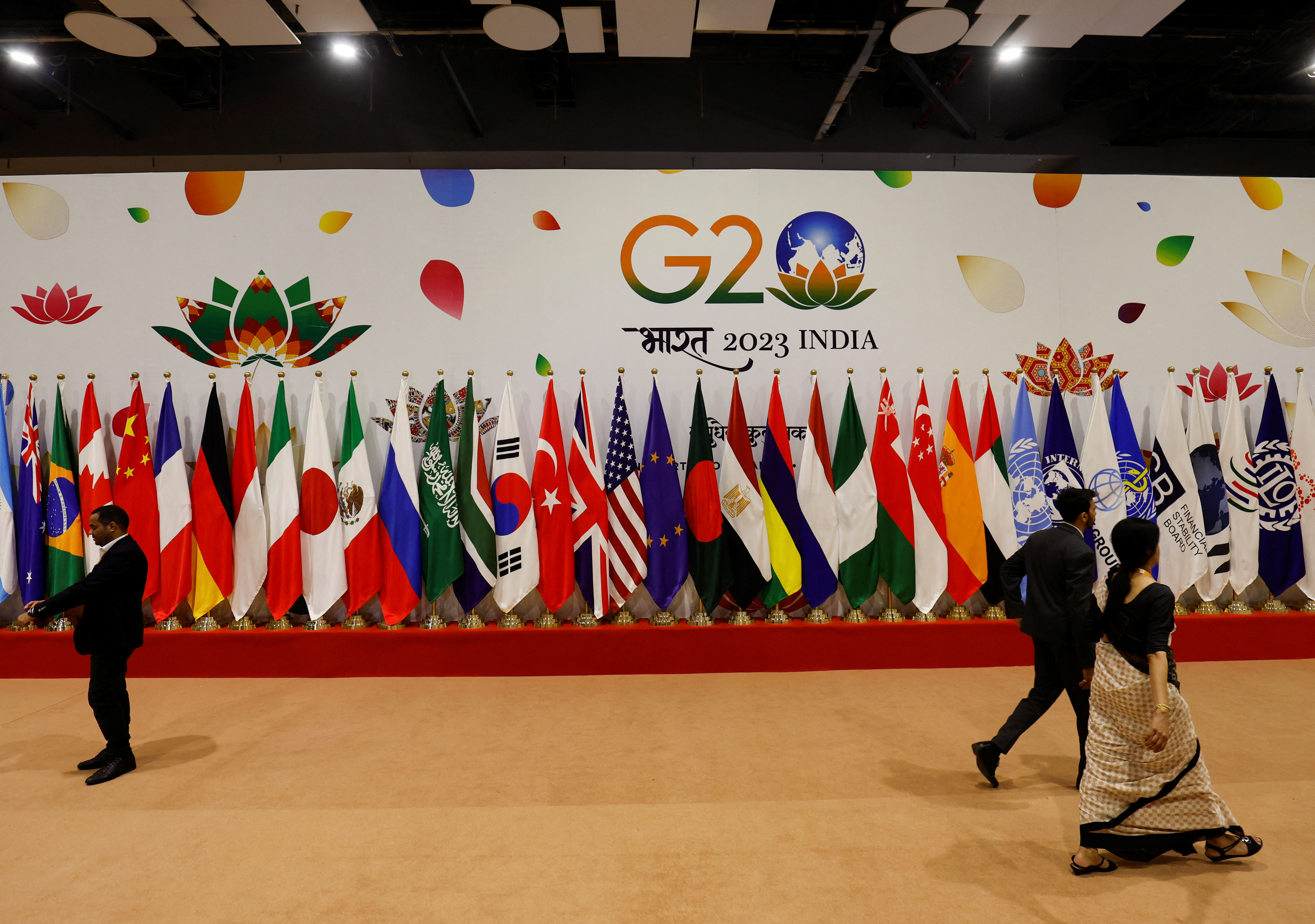- By Shivangi Sharma
- Thu, 20 Nov 2025 12:51 PM (IST)
- Source:JND
Prime Minister Narendra Modi will travel to Johannesburg from November 21 to 23 to participate in the 20th G20 Leaders’ Summit, hosted by South Africa, the Ministry of External Affairs (MEA) announced on Wednesday. PM Modi will outline India’s positions across the G20 agenda and is scheduled to speak in all three sessions of the summit.
This year’s gathering comes at a critical inflexion point for the global economy, geopolitical alignments, and development priorities, made more complex by US President Donald Trump’s decision to boycott the summit entirely, ordering that no American officials attend. The move follows his imposition of tariffs on South African goods and accusations of discrimination against white Afrikaners, claims strongly rejected by Pretoria. South African President Cyril Ramaphosa, unshaken, declared the US absence “America’s loss.”
President Trump: "I'm not going to South Africa for the G20 because I think their policies on the extermination of people are unacceptable. So I'm not going. South Africa has behaved extremely badly."#BlackRacistSouthAfrica pic.twitter.com/8OWT0S48W9
— The Resistance (@ResistanceNewSA) November 19, 2025
Key Focus Areas For India At 20th G20 Summit
At the Johannesburg summit, PM Modi is expected to push for decisive progress on issues closely tied to India’s long-term strategic and development goals:
1. Inclusive Economic Growth and Development Financing
India will advocate for expanded capital at multilateral development banks (MDBs), faster debt relief processes, and mechanisms to mobilise private investment for developing economies. Many emerging markets remain trapped in prolonged restructuring cycles, and India hopes to leverage the summit to revive momentum behind MDB reforms.
2. Critical Minerals Framework
A major Indian priority is securing endorsement for a G20 Critical Minerals Framework, a rules-based system that ensures:
Transparent mining practices
Diversified supply chains
Value addition within developing countries
Safeguards against exploitation
With the world increasingly dependent on lithium, cobalt, nickel, graphite, and rare earths, this framework could prevent supply-chain monopolisation by major powers. While most Global South nations are aligned, resistance could come from China and the US, which dominate global critical minerals production and refining.

3. Climate Action and Renewable Energy Expansion
New commitments on climate resilience and green transitions will feature prominently. India will highlight its rapid scale-up of renewables, leadership in the International Solar Alliance, and push for predictable climate finance.
4. Artificial Intelligence Governance
The future of safe, development-oriented AI is emerging as a global battleground. India is pitching for:
Transparent, accountable AI governance
Inclusion of Global South priorities
Frameworks that prevent monopoly control of AI infrastructure
5. Digital Public Infrastructure (DPI)
Building on India’s globally recognised digital ecosystem, the summit may advance international norms on:
Interoperability
Standards
Cross-border digital payments
Impact measurement
If adopted, this could strengthen the Global South’s voice in digital governance.
IBSA And the Global South’s Moment
PM Modi will also participate in the India–Brazil–South Africa (IBSA) Leaders’ Meeting, reinforcing trilateral cooperation among three of the Global South’s most influential democracies. The meeting is expected to focus on institutional reform, South-South development models, and a shared roadmap for G20 engagement.
Trump’s Boycott
South Africa’s handover of the G20 presidency to the United States in 2026 adds a layer of uncertainty. A developed-nation chair will likely shift focus toward:
Geopolitical risk
Supply-chain security
Industrial-policy competition
Trump’s dismissal of South Africa’s presidency as a “total disgrace” has already raised concerns that Washington may deprioritise Global South issues. The US benefits strategically from some reforms, such as MDB restructuring and global digital standards, especially if framed around countering alternative financing models and strengthening technological leadership.
ALSO READ: ‘From Red Fort to Kashmir’: Pakistan Leader Publicly Admits Role In Terror Attacks Across India

-1763622170244_v.webp)